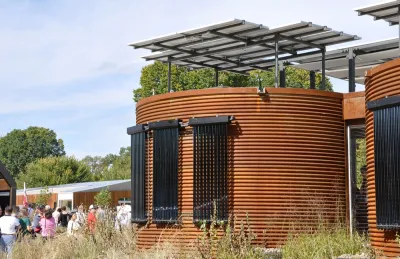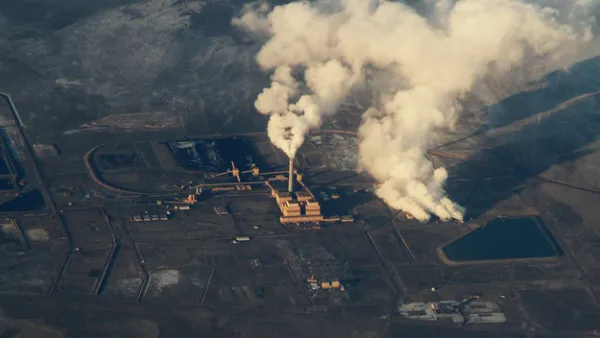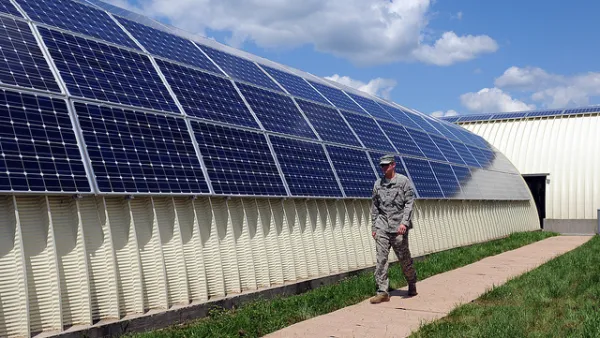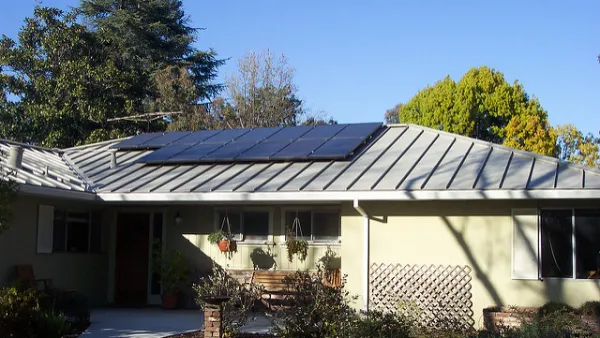Move over, Hawaii and California, with your ambitious goals of going to 100 percent renewable electricity generation by 2045. The District's city council passed legislation on Tuesday that sets 2032 as the target to reach 100 percent renewable.

"The Clean Energy D.C. Omnibus Act of 2018 doubles Washington’s current policy, which says that by 14 years from now, the nation’s capital must be getting half its electricity from zero-emissions sources like solar and wind," writes Alexander C. Kaufman, a climate and environment reporter at HuffPost.
According to the National Conference of State Legislatures, 29 states had adopted renewable portfolio standards by July 20, 2018 that "require utilities to ensure that a percentage, or a specified amount, of the electricity they sell comes from renewable resources."
Hawaii had the strongest goal: 100 percent by 2045. California adopted the same goal after Gov. Jerry Brown (D-Calif.) signed SB 100 in September.
Under the D.C. program, utilities that sell electricity generated from fossil fuels will pay fees, and renewable energy credits will play a central role.
While the renewable portfolio standard (RPS) may be the most high-profile part of the bill which goes well beyond regulating electricity generation, the author, Democratic councilwoman Mary Cheh, notes that it is a climate bill in her news release as it calls for reducing overall emissions as well.
When Mayor Bowser signs the bill [as is expected], it will become the strongest climate law ever passed by a U.S. city. The bill outlines concrete steps that when fully implemented are projected to reduce the District’s greenhouse gas emissions by over 40 percent [pdf]. The District has committed itself to cutting its emissions by 50 percent [below the 2006 baseline] by 2032.
The bill tackles buildings, which account for 74 percent of DC’s carbon emissions according to Cheh.
The RPS will be an important part of cutting the District’s emissions, however, the most innovative and high-impact provisions of the law are its measures to improve the energy efficiency of buildings in the District.
With adoption, the District will become "the first U.S. jurisdiction to require a broad swath of existing buildings to improve their whole-building energy performance."
Another important component is transportation. The bill requires that all public and private transportation fleets operate only zero emissions vehicles by 2045, adds Kaufman. On Dec. 14, the California Air Resources Board adopted a rule requiring all public transit fleets to operate zero-emission buses by 2040, but the D.C. "provision applies to fleets with more than 50 passengers, according to Utility Dive, meaning the ride-hailing services Uber and Lyft are included."
Also on Tuesday, the District signed a Transportation and Climate Initiative agreement with nine states in the greater Mid-Atlantic and Northeast region to develop a policy to cap emissions from transportation and invest in low-carbon transportation solutions.
Additional reading:
- Sierra Club press release, Dec. 18: "Washington D.C. Passes Historic Climate Legislation..."
- Washington Post, Nov. 27: "D.C. Council gives preliminary approval to ambitious clean-energy goals"
Related in Planetizen:
-
D.C. Council Supports Clean Energy Legislation, December 3, 2018
-
Mixed Results on Renewable Energy Initiatives, November 8, 2018Two western states had very similar renewable energy initiatives on the ballot sponsored by NextGen America requiring utilities to get 50 percent of electricity by 2030. It passed in Nevada but was rejected in Arizona.
-
California May Join Hawaii With 100 Percent Renewable Energy by 2045, August 30, 2018
FULL STORY: D.C. Just Passed A Historic Bill Mandating 100 Percent Renewable Power By 2032

Analysis: Cybertruck Fatality Rate Far Exceeds That of Ford Pinto
The Tesla Cybertruck was recalled seven times last year.

National Parks Layoffs Will Cause Communities to Lose Billions
Thousands of essential park workers were laid off this week, just before the busy spring break season.

Retro-silient?: America’s First “Eco-burb,” The Woodlands Turns 50
A master-planned community north of Houston offers lessons on green infrastructure and resilient design, but falls short of its founder’s lofty affordability and walkability goals.

Test News Post 1
This is a summary

Analysis: Cybertruck Fatality Rate Far Exceeds That of Ford Pinto
The Tesla Cybertruck was recalled seven times last year.

Test News Headline 46
Test for the image on the front page.
Urban Design for Planners 1: Software Tools
This six-course series explores essential urban design concepts using open source software and equips planners with the tools they need to participate fully in the urban design process.
Planning for Universal Design
Learn the tools for implementing Universal Design in planning regulations.
EMC Planning Group, Inc.
Planetizen
Planetizen
Mpact (formerly Rail~Volution)
Great Falls Development Authority, Inc.
HUDs Office of Policy Development and Research
NYU Wagner Graduate School of Public Service




























